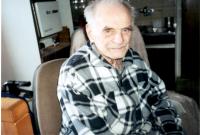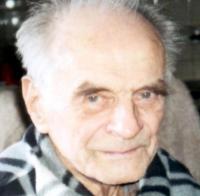With God’s help I survived

Download image
Josef Pokorný was born on December 10, 1922 in a small village of Hodonín near Nasavrk. As his father was employed, he had to help out in a family farm since his childhood. When he was not working and not at school, he´d go to Orel. After finishing grammar school he attended Telegrafie training centre in Pardubice. He´d return there even after war and often carry various messages and materials between Orel in Nasavrky and regional management. In 1949 he was arrested and after long interrogations and a short trial sentenced to six years of high-treason in prison. His property was confiscated and he lost his civil rights. He served his sentence in lagers in Prachovice, in Pardubice and Jáchymov. He was released in 1954. After that he worked in Transporta Chrudim as an electrician. Though he was very manually skilled and his supervisor would write excellent reports, as a sentenced man he was never promoted nor got a higher salary. All his four children had troubles obtaining proper education.

